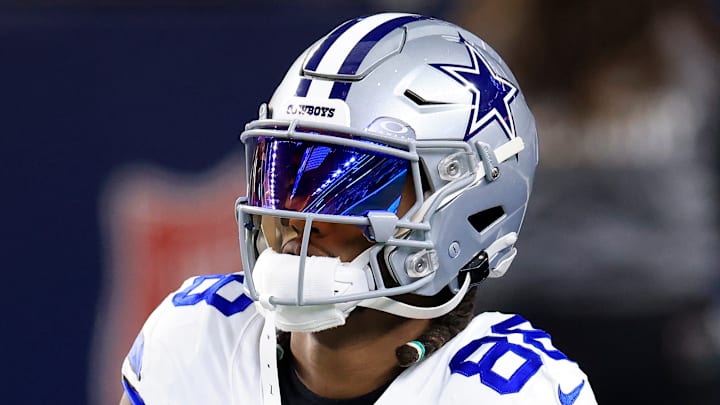The Minnesota Vikings got a contract extension done with Justin Jefferson this summer but it came at a cost. At an average annual value of $35 million per season, some would believe it took some financial gymnastics to get a deal done and now the Dallas Cowboys are using that deal as an argument not to pay their own players.
Cowboys training camp has been centered more around a negotiation table than a football field as Dak Prescott, CeeDee Lamb, and Micah Parsons are all seeking contract extensions. While signing three players in the prime of their careers sounds like a solid blueprint for success, Cowboys COO Stephen Jones recently pointed to Jefferson's contract as a reason why Dallas hasn't signed its star players to lucrative deals.
“You look at a guy like Jefferson, [the Vikings] not paying a quarterback. They’re not paying anybody on their roster at this point.
So it’s a lot easier for them to stretch a little more, and we’re just trying to work through reasonably with CeeDee, reasonably with Dak what we can do to make it work from an economic standpoint, and certainly when you’re trying to pay three guys like that it certainly does limit your opportunities to maybe improve the roster down the line.”
Minnesota Vikings approach shouldn't be an excuse for Dallas Cowboys not to pay their top players
Jones’s observation has some solid arguments. The Vikings spent the past six seasons working around Kirk Cousins’s fully guaranteed contract. With limited options in free agency, the Vikings needed to be almost flawless in their drafting, and the result was a team that routinely won about 7-9 games.
Jones acknowledged that the Cowboys have done a great job drafting to be in this position, but finding that talent isn’t as easy as it looks.
“I welcome the opportunity that we’ve drafted well enough to have one of the best quarterbacks in the league, one of the best pass-rushers in the league… and one of the best receivers…in the league. Welcome the opportunity. It’s great that we draft like that. But it does take time, and it’s certainly not easy.”
While drafting isn’t as simple as a fantasy football draft, Jones’s argument has some holes. The Vikings did give Jefferson one of the largest contracts in free agency, but they also attempted to re-sign Cousins before he decided to take a larger offer with the Atlanta Falcons.
The Vikings also spent $118.5 million on the opening day of free agency last year, adding Jonathan Greenard, Andrew Van Ginkel, and Blake Cashman to shore up the pass rush, and they signed offensive tackle Christian Darrisaw to a four-year, $110 million extension earlier this week.
If that’s not enough, the Cowboys can look at other teams that have kept their star talent around. The New Orleans Saints were the kings of kicking the can down the road during the final years of Drew Brees’s career, while the Tampa Bay Buccaneers also got creative to load up around Tom Brady.
Other teams like the Los Angeles Rams have gone “all in” in the past, and the process resulted in a one-year hangover after winning the Super Bowl in 2021 before returning to the playoffs in 2023.
If Prescott, Lamb, and Parsons were the same age as Vikings greats Adam Thielen, Eric Kendricks, and Dalvin Cook, who were released in recent years, Jones’s approach might be understandable.
But Jerry Jones declared the Cowboys – who haven’t won a Super Bowl or reached a conference championship game since 1995 – as “all in” last spring, making the team’s comparison to the Vikings bizarre.
